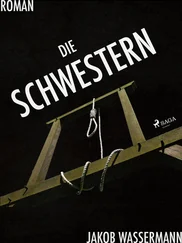Things now start to move. The number of shareholders grows every day. They are all wealthy people. I am amazed at the number of parents there are who want to save their children the trials of a conventional education and offer them freedom, an unorthodox syllabus and modern principles. They must know a thing or two about life, and to them a modest parental contribution that can smooth the way for their unacademic heirs is a reasonable investment.
Much greater, though, is my amazement at Ganna’s indefatigable zeal and evident proficiency. Next to the meadow is a villa with a spacious garden. From the very beginning Ganna has had her tactician’s eye on it. It’s for rent; she rents it; later she means to acquire it for the school. In combination with the meadow, it will provide plenty of scope for the school, especially for boarders. Exciting negotiations are held. Usually in our house. I feel like a man who comes upon some kerfuffle on the street and anxiously asks what it’s all about. Ganna’s announcements are becoming harder and harder to follow. She doesn’t have time for a quiet conversation. Early in the morning she dashes off into the city, and late in the afternoon she turns up exhausted, out of breath, half-starved. Then the writing begins. She writes letters, dozens at a time, and brochures for the printer. Articles for newspapers, pedagogical essays, press releases on behalf of the school board, appeals to the Education Ministry, teaching plans, syllabuses, budgets. I am astounded by her stamina, her mastery, her versatility. Her room has turned into an office. The servants are left to their own devices. The children run wild. By day I flee the house. When I come home at night, the rooms are full of people I’ve never seen before. Lawyers, civil servants, teachers, journalists, enthusiastic ladies, chancres sniffing a job, all of them crammed into our three rooms, munching sandwiches, drinking vast quantities of beer, wine, schnapps and tea, engaged in loud debates and browsing nosily in my books and manuscripts. The telephone is continually manned, usually by Ganna herself. Telegrams rain in, windy pronouncements are read out, and a charter is drawn up for the civil servants to get to work on.
The school board is convened, the share capital is subscribed; and then the first rebellion breaks out. Ganna has exceeded her authority, or so at least it is claimed. She has violated agreements, apparently, meddled in other people’s areas, put the wrong people in important jobs — for instance appointing a nice-looking young man by the name of Borngräber as headmaster on the strength of a few vacuous recommendations and his own smooth manners. And then it transpires that the fellow is intriguing against her and is making a stink. I try and investigate but fail to get to the bottom of the thing. I am perforce left with Ganna’s version. With one of her typical unabashed clichés, she says: ‘I have given suck to a viper.’ But he’s not the only one to come out of the shrubbery. Every day there are fresh opponents, distractions, false reports, betrayals, conspiracies. Borngräber is forming a cabal. Ganna forms one of her own. Not the best thing for a school being founded. What’s the matter, I think, Ganna wouldn’t harm a fly, why is it that all these people are up in arms against her? I hear all sorts of complaints and accusations. I’m not sure what’s going on, and ask Ganna what this thing or the other is about. Ganna describes the events as if she were the victim of malice and envy, as if people were trying to twist the reins out of her hands. She asks me to get involved. If I put my foot down, she assures me, then no one will dare to rebel against her.
Now, I don’t exactly believe in my authority, but I’ll do anything to try and help her, because I too have the sense that she’s confronted by a wild rabble. She’s unhappy. She has sacrificed herself for a great idea and this is her recompense. It’s easy to see the female Don Quixote again, against the background of hostility. Something needs to happen. I talk to the teachers, to the perfidious Borngräber, to Dr Paul, to a respectable Court Councillor who is the titular chairman of the board and Ganna’s confidant. I get nowhere. I no longer know what’s what in all this turmoil. An embittered confusion of voices surrounds me. I’m not cut out to be a peacemaker, I can’t arbitrate between the warring parties. I am told that Ganna has misinformed me on certain significant matters. When Ganna senses my wavering, she flies off the handle. ‘What am I supposed to do, Ganna,’ I say desperately, ‘it’s like being set upon by a swarm of wasps.’ I visit the non-executive chairman, Imperial Councillor Schönpflug is his name. ‘Frau Herzog’s actions are not quite transparent,’ says this otherwise sympathetic man. I reply bluntly that I couldn’t permit the least doubt of the integrity of my wife. I tell her. She asks me to set down my views in a short memorandum to the board: that will gag her enemies. I can’t deny her this, I wouldn’t get any peace. On the other hand, I am in danger of myself being exposed, and perhaps even, who knows, perpetrating a lie; Ganna is terribly prone to self-deception — it may be that she is less innocent than she thinks she is. I write my deposition, convincingly affirming the integrity of her character and the ethical goodness of her actions. Then I run away, and spend a few weeks in peace in Ebenweiler.
THE TRAGEDY OF THE MALE
Before I relate how the ever uglier and more distressing business of the school went on and finally ended, I want to talk about my own experiences in the years before the war, and in the first years of the war — two in particular that, each in their own way, had a profound effect on the future. The one was the birth of my daughter Doris, the other the gift of a house — a whole fully furnished house, with grounds — the kind gift of a young couple I had been close friends with for some time. I had told them about my domestic trouble, the difficulty of finding peace and concentration in a rented apartment, and the resulting tendency to fritter away the day and do my work at night. Then, on a generous impulse, they offered me the money to buy a house in the country. I was so stunned I could hardly breathe. I didn’t dare turn it down, but felt I couldn’t accept it either. It was extraordinary; I asked myself if I had any right to avail myself of this favourable smile of fortune, it almost seemed to me it would be betraying my friends to do so. How can you deserve such a sacrifice — albeit those making it don’t see it as such — how thank them, when thanks you can’t give will end up burdening you? I had none of the greedy self-certainty of those geniuses (I didn’t think I was one in any case) who accept support and help from their admirers as a perfectly natural form of tribute. I was too steeped in the bourgeois ethos of deals and contracts. The formulas ‘nowt for nowt’ and ‘you scratch my back, I’ll scratch yours’ were in my blood. It wasn’t easy for me to see myself in any way as (in some higher sense) ‘deserving’ the generosity of these friends.
Ganna, however, had no such scruples. She thought it was absolutely to be expected that people would seek to spoil me a little. They were only giving me back what they had already had from me in plenty, she said, with eyes wide. ‘Come off it,’ I said, petulantly, ‘there must be a couple of thousand like me. Ninety per cent of us will probably die in a ditch. You’re doing pretty well if you have enough to eat and a bed to sleep in at night. What’s so special about me? What have I done to deserve a luxury villa? We have no right to such security, it seems to me.’ Ganna vehemently disagreed. She was too obviously the child of a well-provided and self-righteous era where mind and work had their value just as stocks and shares did. It raised my worth immeasurably in her eyes, although she seemed not to be aware of the fact that it was her husband who had been given the house. Nothing like this had happened since the days of the Medicis. She trumpeted her and my good fortune to all and sundry, and when I asked her to be a little discreet, she looked at me uncomprehendingly. But it gave us a neutral territory where our shared interests could get to work on a common project. Ganna needed to be kept busy, she was like a stove needing fuel. She could do twenty things at once, and each of them with verve and enthusiasm. And when we discussed the house together, looked for a piece of land, spoke to the architect, studied the plans, bought furniture and lamps and other things, the besetting passivity I fell into whenever I was with her left me, and I could at least be dragged along. And, so that she didn’t see I was only allowing myself to be dragged along, I would stroke her tiny hand which was feeding me sugar lumps, so that I for my part wouldn’t notice how she was dragging me along. Marriage offers the weaker party plenty of opportunity to show no character.
Читать дальше







![Jakob Wassermann - Issue Does Not Exist],errors:{](/books/585068/jakob-wassermann-issue-does-not-exist-errors-thumb.webp)




